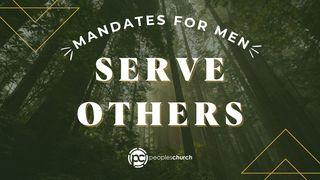Loving My Actual Neighbor By Alexandra KuykendallSample

Day 2
Ask Questions to Learn
Proverbs 18:15
We all likely know people who can get anyone to talk. They draw out stories and details with apparent ease. I believe knowing how to ask questions with the intent to learn is part of this skill.
My questions don’t always reflect genuine curiosity. At times they sound more like statements. I suspect I’ve unknowingly offended people because I’ve overreached and jumped into what they consider private territory. I want my questions to be an avenue through which my neighbors feel more cared for, not less.
Knowing how to learn through asking questions builds on the practice of holding a posture of humility. When I’m in the position of student, I’m acknowledging I don’t have all the answers.
I suggest that our questions be aimed at drawing out the other person’s story. What I want to know about my neighbors is how this earthly, physical life has shaped them. To better know who they are and love them well, I must ask questions that value their experiences.
When asking questions to learn, it helps to pay attention to three things.
1. Nonverbal communication. Body language and tone of voice matter. Leaning your body in toward the other person, making eye contact, even touching someone on the arm if appropriate, can convey care. Uncrossing arms and legs gives a sense of openness, while crossed arms can project hostility. Facial expression will be determined in part by the question, but generally, smiling and relaxing the face encourages conversation.
2. Setting. Surroundings dictate what is possible and appropriate. Is the place private enough for private subjects? Are the surroundings hospitable and comfortable for the person you’re speaking with?
3. Cultural context. We must always be aware of our own filters when entering conversations, including social norms, personality, and life experiences. We need to be culturally sensitive to what may be offensive to our neighbor. This might mean searching out reliable sources of information to help us understand the context of our neighbors’ lives.
May our questions demonstrate a love that counters the sound bites and reflexive responses so common in today’s world. As my pastor, Steve, says, “Jesus walked toward people.” Asking questions to learn is a way of walking toward people.
What do you need to be aware of (tone, body language, culture) when asking your neighbors questions?
Scripture
About this Plan

We find ourselves in times characterized by words like polarization, isolation, and conflict. In some ways we’re experiencing a crisis of interpersonal connection. Though we are more connected to the world through information than ever before, the need for increased face-to-face interaction is evident. This week, let’s consider ways we can heed Jesus’s command to love one another—starting with the people who live and work closest to us.
More
We would like to thank Baker Publishing for providing this plan. For more information, please visit: http://bakerpublishinggroup.com/books/loving-my-actual-neighbor/386490
Related Plans

The Year of God's Divine Agenda

In Her Image: Character Study of the Proverbs 31 Woman

There Is No Law Against These Things

Mandates for Men: Serve Others

Sound of Heaven: A 6-Day Devotional by Danny Gokey

Praying Through Financial Stress

Always Near: 14 Days of Discovering God’s Presence Every Day

Every Place

A Family of Prayer
